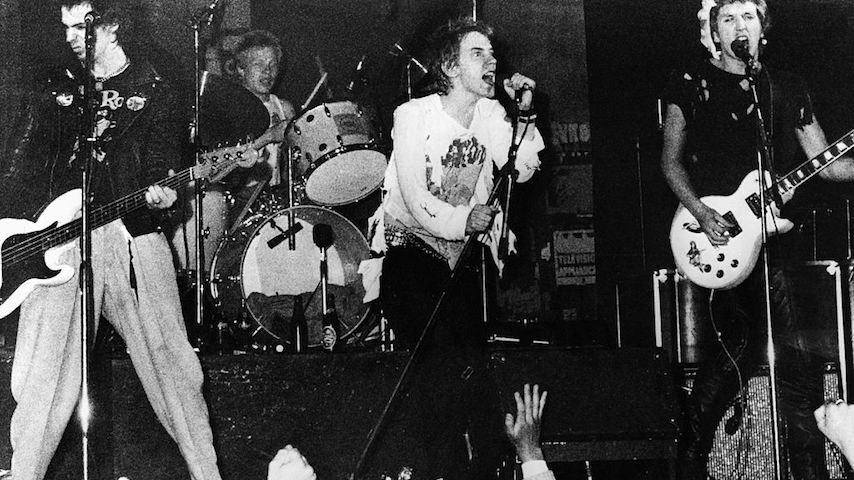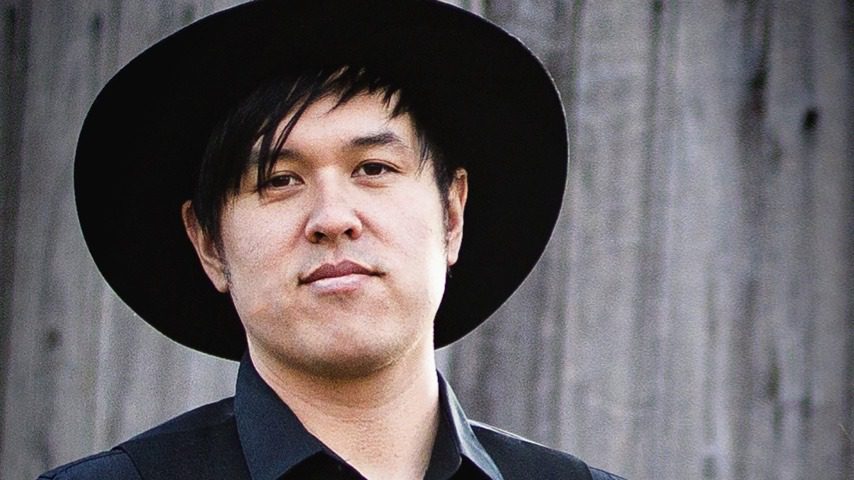Some artists might be having a tough time finding inspiration for their work these admittedly dark days. Not Soviet Georgian-born, British-based singer/songwriter Katie Melua—she not only stumbles across new sources of influence on an almost daily basis, she has also spent much of her life aggressively seeking them out, regardless of medium, genre or original time period.
On her plush new set alone—matter-of-factly dubbed Album No. 8, underscored by the lilting textures of the Georgian Philharmonic Orchestra—she drew from disparate recording artists like Brad Meldau, Charles Stepney, Terry Callier, Ramsey Lewis, even vintage Cole Porter, plus the choreography of Germany’s Pina Bausch and the writings of folk trailblazer Bob Dylan via his Chronicles Vol. 1 tome, in which she highlighted any musician she hadn’t heard of. Then she meticulously researched every last one to create her own edifying, and ultimately life-changing, playlist.
Meanwhile, her seven-year marriage to James Toseland was ending, so to strengthen her songwriting skills to deal with such private topics more metaphorically, she enrolled in an actual short-fiction-writing course at London’s Faber Academy. Once under the aegis of hitmaking producer Mike Batt after pursuing her craft at the prestigious BRIT School, she was determined to pen every last No. 8 lyric, and so she did. Mission accomplished—apart from the somber piano etude “Heading Home” and a conversely jazzy “Voices in the Night,” which were rooted in a trip back to the Caucasus mountains she undertook with her father—a good deal of the record deals with the breakup, albeit subliminally, in “Joy,” “Airtime,” “Remind Me,” and “Your longing is Gone.”
Having started her career with Call Off the Search in 2003, then in only three years becoming the U.K.’s best-selling female artist, the chanteuse didn’t necessarily need to push herself—she has a huge core audience overseas that hangs on her every word. But she strongly felt this overriding artistic imperative. And if you’re a true art lover, she says, “It’s kind of unavoidable, isn’t it? You just have to do it.”
Paste: Curiosity — it’s probably the most important asset for any artist with longevity, right? And you’re either born with it, or you weren’t.
Katie Melua: Yeah. And I think it’s just always been a part of my life and my nature. And maybe I first noticed it when my family moved to the UK from Georgia when I was eight years old. In the ’90s, when we left, I’d never been taken to a library, because the country was on its knees back then. But when I moved to Belfast, I of course went to the local library, and I was just blown away. I literally would just spend hours in there, browsing books, discovering anything I could get my hands on. And I was even more blown away by the fact that you could take away six books, for free, and I didn’t have to hand over any money. It really just blew my mind. So that’s when I first noticed that my curiosity was completely switched on — the first time I went to a library and understood how books made me feel.
Paste: What have been some touchstone texts for you over the years?
Melua: I have too many to mention, really. But at the moment, I’m completely obsessed with
To the Lighthouse by Virginia Woolf, and also T.S Eliot’s Tradition and Individual Talent text. The literary world is just the world that I’m massively inspired by, and it’s been a particularly important part of the making of Album No. 8. I’ve always been fascinated by the mysticism that surrounds songwriting, and particularly lyric writing. So for me, where I’ve been able to find a certain world that inspires my imagination is anything to do with the literary world—delving into poetry books, going to study fiction writing at the Faber Academy.
Paste: Did anyone in class recognize you?
Melua: No. Not at all. Because I think people just know my music, but I wouldn’t say that my face is as well-known. And this was a three-month course in short story writing, and I went there quietly every week. And I found that the most important author I got introduced to there was Flannery O’Connor. Wise Blood is just fabulous, and I just dove into her work. And in going through courses like that, you learn how writers develop their style, which you can then apply to how you’re developing yours. So now, for me, it’s about creating a world with a certain sense of style to it, while making sure that it rings true and also stands up to all the traditions that exist in our industry. And I found that once I read Flannery O’Connor, Quentin Tarantino made sense to me. In Russian cinema and European cinema, that same level of violence and its brutal look just didn’t happen. But then suddenly, you had that in Tarantino’s work, so I felt like he was the godparent of that cinematic development. So if you listen to my song “Airtime,” of course there’s a breakup in there, But I was more interested in how to take certain personal stories and treat them with respect, but also honesty, so the story is just hinted at but never completely black and white. And I also wanted to resist the urge to be judgmental or lash out at anyone or anything that I thought had been done wrong.
Paste: You just passed the so-called Christ Age, 33, when you’re theoretically supposed to find affirmation that you’ve chosen the right path.
Melua: I think I went through something like that in 2010, so that was a kittle bit early. I was 26, and my health was really suffering from overworking. So I started making records very quickly, and just not feeling that involved — I was just in the middle of making records and selling records, in their most black and white form. And that led me to the rediscovery that I CAN be creative, and I can make music, but the priority doesn’t just have to be success. And sure, success is brilliant and positive, and it’s always welcome. But it shouldn’t be your priority, because it’s not that essential. So a spirit of discovery, a spirit of honesty in the music has become much more important to me, and to respect yourself and your body and your capabilities. That’s become really, really important. So ten years ago was when I had that crisis, and it was pretty bleak — I ended up in the hospital, but I eventually got better from it. So from that, I suddenly got fascinated with being in the studio and working with real musicians, and discovering what was actually possible with songs. And I still feel like I’ve only just started in the music industry, because microphones were invented when? 102 years ago? So I think there’s still a lot to discover, and that quest is what keeps me interested, fascinated. And I also really believe in pausing at the positive. If anything has gone wrong in my life — and I know this is a cheesy thing to say — but one has to look at it as a lesson, as something one has to overcome as a sort of challenge. So overall, I think I have a pretty positive view of the world.
Paste: Even now, with the coronavirus, unavoidable climate change, and humanity teetering on the brink of its own destruction?
Melua: I know, I know. And of course it is. However, you can choose to get completely immobilized by all of that and feel utterly wretched, or you can look at how many people around you are pulling you up—look at the love that’s been on display alongside the pandemic. So it’s all about thinking, “Where am I going to get my inspiration from? And how am I going to view the world? Am I going to wallow in all the injustices plaguing the world or am I going to get involved in, say, all the charity work that’s being done and rally around the brilliant people that are making amazing strides forward in—and for—society?” So, as a creator, I try to maintain a certain optimistic aesthetic, and I don’t torture myself. I choose not to have a negative view of the world. But I don’t deny that all of that stuff is going on, and that all of that is terrible—you just can’t be an idealist right now, unfortunately. But I just try to stop and think, “How is this affecting my space? How is it affecting my work?”
Paste: You’ve explored a great deal of the outside world so far—skydiving, taking flying lessons, even performing live deep beneath the ocean at one point in 2006. But now you seem to be looking inward.
Melua: Yeah. And the only person that can control that is yourself. No one else will do that for you. But that’s probably in the same realm as healing, isn’t it? Of medicine? And I find that utterly fascinating. If you do that through your writing, I think what happens on a daily basis is, you write as you dig deeper into your brain, your thoughts, your feelings, and your memories, and it ends up on records but really relieves your mind of those negative things. And to have that spark of self-discovery as you write I think is really magical.
Paste: And for any other topic you want to research, you now have the Internet, so there’s no excuse for not mastering said topic.
Melua: I love that, though. Everything is available now. For example, I’ve always said that I wanted to dive into folk music properly. But I would just look at the Internet and not know where to start. Until I came across that book by Dylan, because I was able to highlight all the names in it that really mattered, and then I suddenly had a three-hour playlist. And it was brilliant, it was transformative. And I think songwriters have a responsibility to inform the younger generation. Like, my uncles worked so hard to educate me as a kid, so I knew who Led Zeppelin was, I knew who Black Sabbath was. And if they hadn’t done that, I never would have been exposed to all that. So I just think that there’s a joy in discovering things in the music world. And when we went into the studio on this record, Bob Ezrin was involved as an executive producer. And he said to me, “Look—write down your ten most perfect songs. And make sure you know them, , and know what they feel like when you perform them. Because that’s where you’ll get your quality benchmark—the standard that you want to live up to.” So I still have that list in my studio—I’ve got Dylan on there, Joni Mitchell, Bill Withers and it goes back as far as “The Man I Love” by Gershwin. And #1 on my list was “Summertime” by Cole Porter, one of the most classic songs in the American Songbook. And I love Neil Young, but there’s also that classic sound of The Temptations that I really adore. “Just My Imagination” is a stunning piece of work. So I think it’s important to know those traditions. You may want to rebel against them, of course, but it’s important to know them.
Paste: And film plays a big part in your life, too, right?
Melua: Yes. Totally. I just saw Woman in the Dunes, and Oh my God! It’s such a great film! The guy who produced Album No. 8, Leo Abrahams, introduced me to it, and I loved it, I felt like my life was completely changed. And I actually sent him a message after watching it, saying, “Here’s hoping that our record is as good as this film,” And I also love Bergman’s Summer With Monika—such beautiful scenes underscoring this hilarious portrayal of a romance in Sweden. But I think that you digest as much as you can so you can justify yourself the right to create, to make music. So I worked really hard on this album, on assembling my influences. And it all helped me discover even more things about the artistic process.




